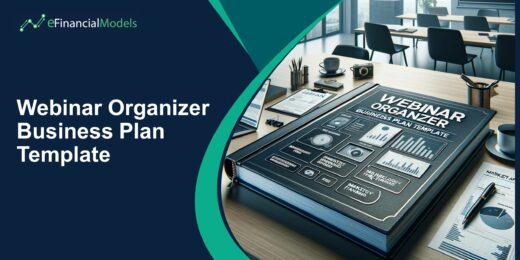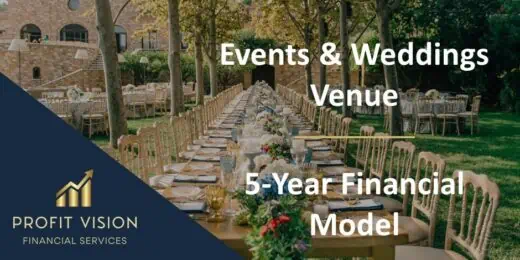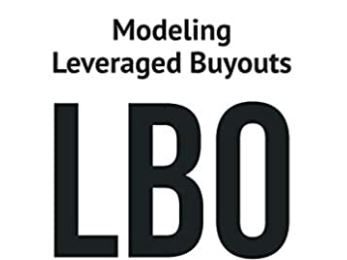Event Organizers
Webinar Organizer Business Plan Template
Discover the key to financial success in your webinar ventures…
Party Planning Business Financial Model
Introducing the Party Planning Business Financial Model – Your Ultimate…
Event Organizer Business Model Template
Elevate your event planning business to new heights with our…
Events & Weddings Venue – 5 Year Financial Model
Financial Model providing an advanced 5-year financial plan for a…
Escape Room Financial Model – 5 Year Forecast
Financial Model providing an advanced 5-year financial plan for a…
Family Entertainment Center – Dynamic 10 Year Financial Model
Financial Model providing a dynamic up to 10-year financial forecast…
Event Planning Company – Dynamic 10 Year Financial Model
Financial Model providing a dynamic up to 10-year financial forecast…
Music Events & Festivals Production – Dynamic 10 Year Financial Model
Financial Model providing a dynamic 10-year financial forecast for a…
Entertainment Venue Financial Projection 3 Statement Model
User-friendly 3 statement 5 year rolling financial projection Excel model…
Event Planner Financial Model Excel Template
Purchase Event Planner Pro-forma Template. Create fully-integrated financial projection for…
LBO Financial Model (Detailed)
A comprehensive LBO (Leveraged buyout) financial model to analyze investor…
Events Agency Financial Model Excel Template
Shop Events Agency Financial Model Template. With this Excel you…
Public Relations Agency Financial Model Excel Template
Purchase Public Relations Agency Financial Projection Template. Creates a financial…
Event Organizers’ Guide to Profit

"The details are not the details. They make the event." - Charles Eames. Every tiny detail, whether it's the lighting, the seating arrangement, or the timing of each segment, contributes significantly to the attendees' overall experience. For event organizers, adopting a detail-oriented approach is not just about ticking boxes; it's about crafting an experience that resonates with attendees, maximizes efficiency, and enhances the event's reputation and profitability.
Event organizing can be profitable and rewarding when approached with strategic planning and a clear market understanding. As an event organizer, you can craft memorable experiences that bring people together for various purposes, from conferences and conventions to concerts and festivals.
The industry's profitability hinges on your ability to balance creativity with practicality, effectively manage budgets, and cater to your target audience's needs. By harnessing the right strategies, tools, and insights, such as sophisticated financial modeling and analysis, you can not only ensure the smooth execution of each event but also maximize your financial returns.
In this guide, we'll explore the key aspects that contribute to the profitability of event organizing, offering you the knowledge and confidence needed to turn every occasion into a successful and lucrative venture.
What Is an Event Organizer?
An event organizer is a professional responsible for planning, coordinating, and managing events. They handle the logistical details such as venue selection, vendor negotiations, budgeting, and scheduling and work closely with clients to ensure the event meets their vision and objectives. With a keen eye for detail and strong organizational skills, event organizers oversee every aspect to ensure a smooth and successful event, handling unexpected challenges with poise and guaranteeing a memorable experience for all attendees. Their role is crucial in orchestrating events that are not only successful but also leave a lasting impression.
Event organizers plan and execute a diverse range of events to bring people together for various purposes. These events can broadly be categorized into corporate, social, and promotional categories.
- Corporate events include conferences, seminars, and workshops aimed at professionals for networking, training, or discussing industry trends.
- Social events encompass personal and community gatherings like weddings, birthdays, cultural festivals, and reunions, focusing on celebration and social engagement.
- Promotional events, such as product launches, trade shows, and brand activations, are designed to market and advertise to a target audience, creating buzz and interaction with the brand.
Each type of event requires meticulous planning, coordination, and execution, tailored to the specific objectives and audience it aims to serve.
What Does an Event Coordinator Do?
Event Coordinators perform multifaceted roles, requiring creative vision and meticulous attention to detail. Here's a breakdown of what does an event coordinator do:
- Acquire Necessary Permits: A critical task of what does an event coordinator do is to ensure that all legal and regulatory requirements are met for the event. It may include permits for sound, alcohol, food service, and venue occupancy. Without the proper permits, an event can be shut down or face fines, which is crucial for legal compliance and the event's overall success.
- Arrange Speakers or Entertainers: Speakers and entertainers can be pivotal in attracting attendees and ensuring the event is engaging and memorable. Identifying, negotiating with, and booking suitable speakers or entertainers that align with the event's theme and audience expectations is part of what does an event coordinator do.
- Conceptualize the Event Planning Process: A well-conceptualized event ensures that it meets the intended objectives and resonates with the target audience. So, what does an event coordinator do? They develop the event's theme, objectives, and format. It involves brainstorming creative ideas, setting goals, and planning the overall flow of the event.
- Coordinating with Third-Party Vendors: Event organizers work with external suppliers such as caterers, decorators, and technology providers to ensure all aspects of the event are professionally managed. Reliable vendors are essential for the smooth execution of the event, and good coordination can prevent mishaps.
- Logistic Management: Most of the time, what does an event coordinator do involve logistics management. It means handling the logistical aspects such as venue selection, transportation, accommodation, and the scheduling of activities. Effective logistics management ensures that all attendees have a positive experience and that the event runs smoothly.
- Manage Budget Parameters: Financial oversight is crucial for the event's viability and success, helping to maximize return on investment and avoid overspending. So, here's a critical task: what does an event coordinator do? They create and adhere to a financial plan, which includes forecasting costs, tracking expenses, and ensuring the event remains within budget. An event management planning template can make it easier for event organizers to manage their clients' budget parameters.
- Supervise Event Setups: Event organizers oversee the physical setup of the event, including the arrangement of furniture, decor, technology, and signage. These can significantly influence the attendee's experience and the event's atmosphere, making supervision critical to ensure everything is in place and functioning. An event planning checklist template helps event organizers supervise setups by providing a detailed timeline and list of tasks to ensure all elements are prepared and executed according to plan, minimizing the risk of oversights and last-minute emergencies.
In summary, event organizers are the central hub of planning and execution, ensuring every detail is considered, and every contingency is planned. Their work is pivotal in transforming a concept into a successful event that meets the organizers' objectives and leaves a lasting impression on the attendees. Their ability to multitask, negotiate, and problem-solve, all while maintaining a keen eye for detail and a creative vision, makes them invaluable in the event planning and management industry.

What Are the Stages of the Event Planning Process?
The event planning process is a structured approach to organizing and managing events. This process is generally divided into several key stages, each crucial in ensuring the event's success. Here's a breakdown of the stages:
- Event Planning Proposal: An event planning proposal is a detailed document presented by an event planner to a client, outlining the services, strategies, costs, and timeline for organizing a specific event. At this initial stage, the event's concept is born. It involves outlining the event's purpose, theme, and overall vision. Event organizers assess the practical aspects of the event, such as potential dates, locations, and the broad audience. Then, they prepare the event planning proposal to stakeholders or clients, detailing the event's concept, potential costs, and benefits.
- Establishing the Budget, Goals, and Objectives: Once the event planning proposal is accepted, the next step is to solidify the event's framework. Event organizers determine how much money is available and allocate the budget across various components like venue, catering, marketing, and entertainment. They clearly define what the event aims to achieve, whether it's raising funds, launching a product, or fostering community spirit.
- Reservation with Partners, Sponsors, and Venue: Securing the necessary partnerships and reservations is crucial. Event organizers will book the ideal venue that aligns with the event's theme, size, and technical requirements. They identify and secure sponsors whose brand values align with the event, providing them with value while funding and supporting it. Furthermore, they engage with vendors for catering, decor, entertainment, and other services.
- Confirmation of Guests/Attendees: This stage focuses on building the guest list and ensuring attendance. Event organizers design and send out digital or physical invitations to potential attendees. They keep track of who will be attending and any special requirements they may have. They keep potential attendees engaged and informed about the event through regular updates and teasers.
- Coordinating Everything During the Big Day: On the event day, all things on the event planning checklist template come to life. Event organizers ensure the venue is set up according to the plan, with all technical equipment, decor, and seating arrangements in place. They manage vendors, staff, and volunteers to ensure they know their roles and responsibilities. Furthermore, they are prepared to handle any unforeseen issues that arise smoothly and efficiently.

While not always listed, post-event activities are crucial for long-term success. Event organizers gather feedback from attendees, sponsors, and staff to understand what worked and could be improved. They review all bills and expenses to ensure they align with the budget. What does an event coordinator do after the vent? They send thank-you messages to attendees, sponsors, and partners to maintain good relationships.
In summary, the event planning process is a comprehensive approach to creating successful and memorable events. Each stage is interconnected, requiring attention to detail, strong organizational skills, and the ability to adapt to changing circumstances. By carefully navigating these stages using an event planning checklist template, event organizers can ensure a smooth, impactful, and enjoyable event experience for all involved.
Plan Events & Master Finances Effectively
The path to profitability for event organizers is paved with strategic planning, keen financial understanding, and the adept use of resources. You can turn each event into a lucrative venture by harnessing the power of thorough market analysis, precise budgeting, dynamic pricing strategies, and continual performance evaluation.
In conclusion, effectively orchestrating successful events and mastering financial aspects is markedly attainable by utilizing comprehensive tools like an event planning checklist template and an event management planning template. These resources provide a structured pathway, ensuring every detail is meticulously addressed, from initial conception to final execution.
They empower planners to foresee and budget for all contingencies, enhancing decision-making and operational efficiency. As you leverage these templates, you cultivate an environment of precision and control, transforming complex event planning and financial management into a more manageable and successful endeavor. Consequently, you're not just planning events but crafting memorable experiences while maintaining a firm grip on the financial reins, leading to sustainable success and growth.














